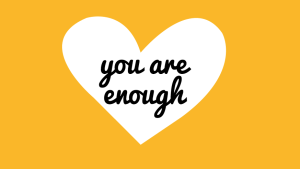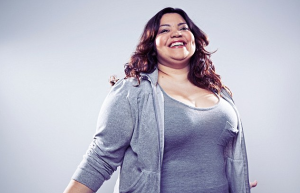
Source: NY Mag
Originally published on xoJane and cross-posted here with their permission.
Trigger warning: This article contains discussion of eating disorders.
Names in this article have been changed.
We met out by the dumpster, sitting on the concrete wall behind the theater. Ben’s face still maintained boyishness, with flushed cheeks, bright red lips, and shoulder length brown hair pulled back into a ponytail.
I watched him take a drag from his cigarette as we bitched about customers, co-workers and the management, shaded from the hot desert sun by the brick building towering over us.
It was the summer of 2006, and my first foray into the “real world” since graduating high school earlier that year involved schlepping overpriced candy and selling movie tickets in a dingy box office that smelled of stale popcorn.
Ben started about a month after me. I showed him the ropes behind the concession stand while he stood awkwardly in a tucked-in polo shirt — the uniform we all had to wear — with arms crossed, listening intently. He seemed somewhat uncomfortable in his skin, but, hell, so was I.
I quickly learned about Ben’s wickedly sarcastic sense of humor, and we bonded over a shared love of photography, Modest Mouse and Charlie Kaufman films. Soon enough, we were inseparable, switching shifts and making excuses to clean the trashed theater auditoriums together.
Our friendship bled onto the sun-bleached pavement of the parking lot on nights when we would work the closing shift together. We’d sit on the curb and talk for hours on those warm summer nights.
One week in June, Ben asked if I would give him a ride after our shift because his truck was in the shop. I happily obliged, and we soon found ourselves opening up even more on the drive to his Grandmother’s house.
I told him about my dad, who was losing his 3-month battle with stage IV kidney cancer in California, and he told me about the anger he had for his mom, who had recently remarried and moved to Texas with his younger sister, leaving Ben alone to take care of his elderly grandmother.
We were both dealing with some rough times, but there was a comfort in knowing that we could talk to one another.
“Isn’t Ben getting skinny?” My friend and assistant manager remarked one day toward the end of the season. I didn’t notice until he brought it up, but, yes, he was losing weight. I wondered aloud if he had started exercising or eating better, but quickly moved on.
While I gained about 10 pounds that summer, between munching on free and unlimited supply of buttered popcorn and soda and buying candy and pretzels on my days off when I would come in to watch a free movie, Ben continued to drop weight, rarely dipping in to the popcorn and free slushies like the rest of us.
We often worked long shifts together, and while we went out pick up fast food on our dinner breaks together, he rarely ate anything.
Shortly after my dad died that fall, Ben and I began dating.
We moved slowly. While I struggled to keep from sinking into depression, Ben helped me stay afloat, driving around with me for hours at night, listening to music, talking, or just sitting in the still car, staring at the city lights stretching before us.
We were both working full-time at the theater, so we spent a lot of time at 24-hour restaurants, gorging ourselves on comfort foods like pancakes and coffee after our shifts.
When Ben moved into a new apartment by himself, his glaringly empty fridge bothered me. “Don’t you ever eat here?” I asked him one day. “Not really,” he replied sheepishly, and I left it at that, assuming he was just a typical young bachelor with poor cooking skills.
By winter, Ben had lost around 75 pounds.
One cold December night, I slept at his apartment for the first time. Ben switched the lights off, changed into pajamas in the bathroom, and slid into bed after. His body felt tense and, as I wrapped my arms around his torso, I could feel his ribs. Snuggling closer, I felt his hip bone press into me. His breathing was shallow, almost as if he were holding it in.
“You’re so skinny,” I said quietly, feeling a knot of nerves forming in my throat. Ben grabbed my hands as they slid down toward his stomach. “Don’t touch there,” he whispered.
After that night, I became acutely more aware of Ben’s extreme insecurity and unhealthy habits. Over time he became more comfortable with me in bed, but was still deeply ashamed of parts of his body, often covering them or pulling my hands away.
He began working out in his apartment’s gym, spending hours running on the treadmill.
When I would see Ben later in the day, I’d ask if he was hungry since I usually was, and he’d tell me that he had forgotten to eat all day. Noticing this pattern, I made sure we ate together almost every time I saw him, regardless of whether or not I was hungry.
One night, as I was getting ready for bed in his bathroom, I glanced at the toilet and noticed that the sides of the bowl were filthy, covered in dark specks of what looked like vomit.
“Did you throw up?” I asked when I got into bed.
“Why?” He looked taken aback.
“The toilet is dirty — it looks like someone threw up in it.” I replied.
“Oh, yeah, I wasn’t feeling good earlier,” he answered. I left it at that, fearing what would happen if I pressed for more information.
Over the next couple of weeks, I noticed the same grime appearing in the toilet bowl every couple of days. Ben and his friends frequently binged on Mexican food and ate out with me whenever I asked him to. I started putting the pieces together, growing more and more alarmed with what was happening.
The physical signs were obvious to me now, but I worried more about what I couldn’t see. Why he was doing this to himself?
I felt the unbelievable weight of worry and sadness for him. I felt isolated and ill-equipped to help him, still lost in my own pain.
This wasn’t my secret to tell, I thought, so I kept it from family and friends, just as Ben tried to do. I did what I thought would help at the time, dragging him out to eat with me every day.
As our relationship progressed, trust grew, and Ben slowly started to open up about what was going on.
“I’m messed up,” he told me late one night, and, as I delicately pressed for more, he recalled the abuse he sustained as a child at the hands of his father, a man he was still in contact with.
As I sat holding him, I asked if he was making himself throw up, and, trembling, he admitted that he was. It was a shock to hear him say it, and I had no idea how to help him. I told him how worried I was, that he was too thin and that he needed to stop.
“I know I need to, I know,” he told me.
At the time, I naively thought my words and support alone could help him. In reality, he retreated further and further into his own self.
I’d like to tell you that I encouraged and helped Ben seek treatment and support from his family, but I can’t. Instead, we carried on for two years with little change. We ate out, he started cleaning the toilet more often, and in bed I’d hold him, feeling his bones pressing into my body.
As his weight eventually stabilized at a number still far too low for his height, our relationship began to weaken. The worry I had over his well-being began to destroy how I saw Ben, and how he saw me.
The severity of this secret, his unwillingness or inability to open up to me about it, and my feelings of helplessness eventually came to a head, and we decided to separate. I cared deeply for Ben, but became so accustomed to trying to fix him that I lost my own sense of self.
We lost contact shortly after we broke up, but I recently looked Ben up on Facebook and discovered that he is engaged and recently completed certification to become an airline pilot. Seeing that he appears to be doing well makes me so happy.
Still, five years later, I often find my mind wandering back to those years with Ben and feel weighted with guilt for being so careless, and for leaving him at a time when he needed all the love and support he could get.
I wonder if he is still struggling, or if he sought professional help.
Knowing what I now know about EDs and the overwhelming feelings of shame that accompany them, I regret how carelessly I approached his illness.
I wonder how things would have been different had I encouraged him to seek treatment, instead of watching him battle this on his own for so many years.
But I didn’t know then what I know now.
[do_widget id=”text-101″]
Want to discuss this further? Visit our online forum and start a post!
Search our 3000+ articles!
Read our articles about:
Our online racial justice training
Used by hundreds of universities, non-profits, and businesses.
Click to learn more




















